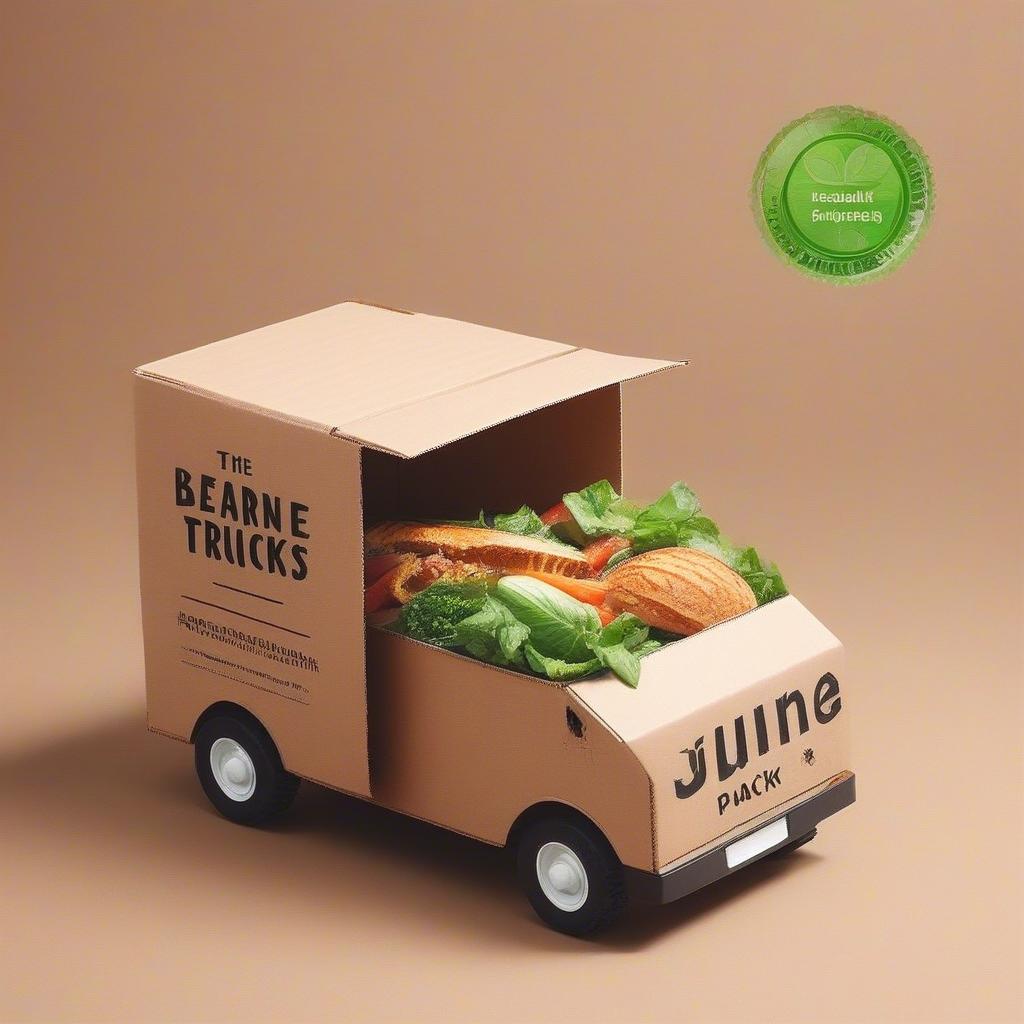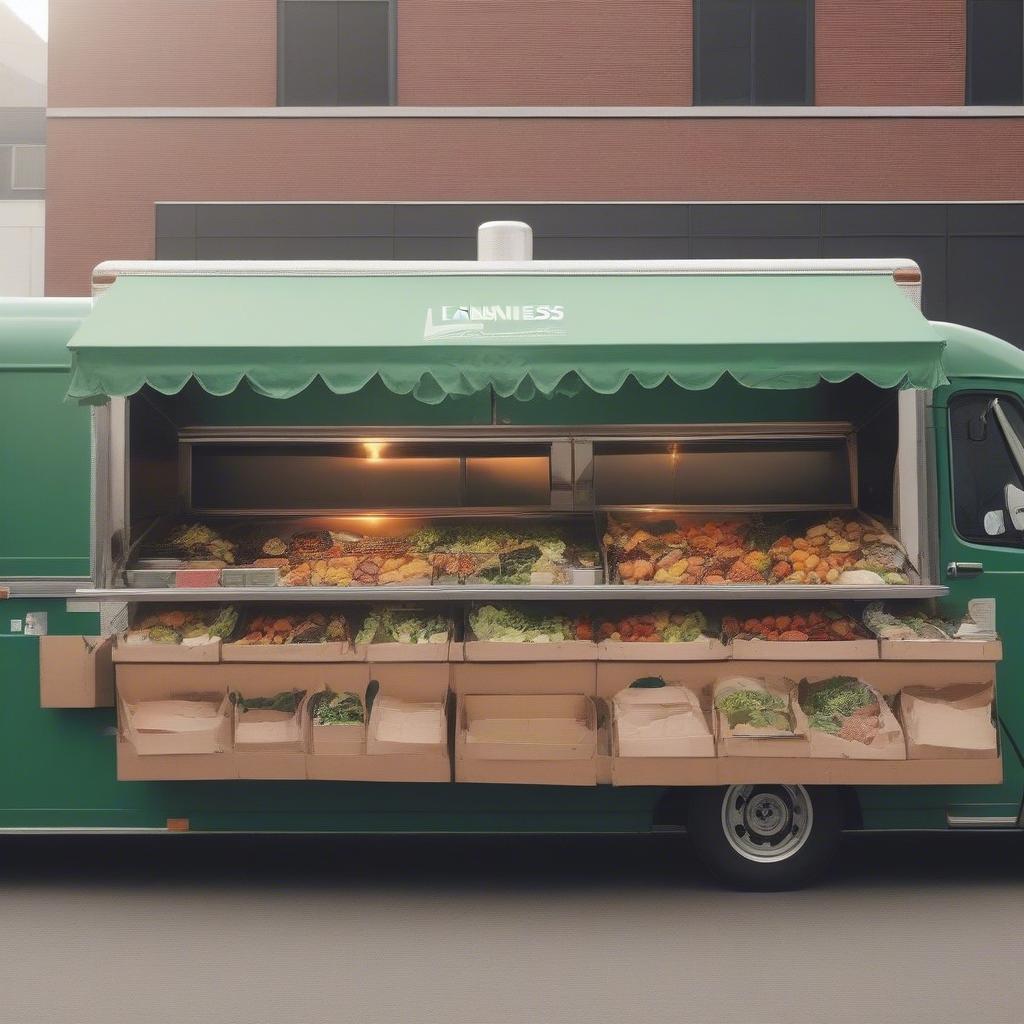
7 Tips for Hiring the Best Staff for Your Food Truck
Running a successful food truck is more than just having a killer menu. It’s about the people behind the grill, taking orders, and interacting with customers. Your staff is the heartbeat of your mobile eatery, and hiring the right team can make or break your business. This isn’t just about finding warm bodies to fill positions; it’s about finding passionate, reliable individuals who will contribute to your food truck’s success. Here are seven crucial hiring tips to help you find the perfect food truck staff.
1. Defining Your Needs: What Kind of Team Do You Need?
Before you even think about posting a job ad, you need to get crystal clear on what kind of team you’re building. This isn’t just about how many people you need, it’s about understanding their roles and responsibilities.
Understanding Your Operational Demands
- Peak Hours and Volume: Analyze when your food truck is busiest. Do you have consistent lunch rushes or weekend spikes? This will determine how many staff members you need during those periods.
- Menu Complexity: A simple menu might require fewer hands, while a diverse offering may need chefs with specialized skills.
- Service Style: Is it primarily takeaway, or do you offer limited seating? This affects the number of staff you’ll need in the front-of-house.
- Prep Work: Consider how much prep work needs to be done each day. Can it be done by one or two individuals, or does it need a larger team?
- Event Catering: Do you plan to cater events? This will impact your staffing needs for those specific engagements.
Defining Specific Roles and Responsibilities
- Chef/Cook: The core of your operation. They should be experienced, passionate about food, and capable of consistent quality and speed.
- Order Taker/Cashier: This role is crucial for customer interaction. They need to be friendly, efficient, and handle cash accurately.
- Food Prep/Line Cook: Responsible for preparing ingredients and assisting with assembly. This requires someone organized and detail-oriented.
- Driver/General Helper: May involve driving the truck, restocking, or helping with general tasks. Flexibility and a willingness to help are key.
- Manager/Supervisor: If you’re growing and have a larger team, someone to oversee staff and manage shifts might become essential. This role needs great leadership qualities.
Creating Detailed Job Descriptions
Don’t be vague. When you post your recruitment guide, be specific about the expectations for each position. For example, your chef job description might include:
- Experience with specific types of cuisines or cooking methods.
- Ability to work in a fast-paced, high-pressure environment.
- Knowledge of food safety and hygiene regulations.
- Physical capability to work on their feet for extended periods.
- Ability to maintain a clean and organized workstation.
A clear understanding of your needs will guide the entire hiring process and help you attract the right candidates.
2. Where to Find the Best Food Truck Talent
Knowing what you need is one thing, but knowing where to find those individuals is another. The recruitment guide is key but you also need to know your options.
Online Job Boards and Platforms
- Indeed, LinkedIn, and Glassdoor: These are popular platforms for posting job ads. They offer a wide reach and often attract a large pool of candidates.
- Craigslist: A more localized platform that can be effective for finding local workers, particularly in larger cities.
- Specialized Restaurant Job Boards: Look for boards tailored specifically to the hospitality industry, such as Culinary Agents or Poached.
- Social Media: Use your food truck’s social media channels to announce job openings. This can reach a more engaged audience that may be interested in your brand.
- Community Groups and Forums: Post in local community groups or food-related forums. This can sometimes attract candidates with a connection to the local area.
Utilizing Your Network
- Word-of-Mouth: Let your current staff, friends, and family know you’re hiring. They may know someone perfect for your team.
- Industry Contacts: Reach out to chefs, bartenders, and restaurant staff you’ve worked with in the past. They might know someone looking for new opportunities.
- Local Culinary Schools: Connect with culinary schools to tap into a pipeline of passionate young professionals.
Local Recruitment Efforts
- Local Job Fairs: Attend local job fairs to meet candidates in person. This gives you a chance to assess their personality and fit for your team.
- Flyers and Posters: Post flyers and posters in places frequented by your target demographic, such as community centers, colleges, and local businesses.
- Partnering with Other Local Businesses: Collaborate with other restaurants or food-related businesses to cross-promote job opportunities.
3. Crafting an Irresistible Job Ad
Your job ad is your first impression with potential candidates. It needs to be compelling, clear, and highlight what makes your food truck staff unique.
What to Include in Your Job Ad
- Clear Job Title: Be specific about the role you’re hiring for (e.g., “Line Cook,” “Food Truck Cashier,” or “Head Chef”).
- Company Introduction: Briefly describe your food truck, its mission, and culture. Make it sound like an exciting place to work.
- Detailed Job Description: Clearly outline the responsibilities, required skills, and experience level.
- Salary and Benefits: Be transparent about pay and benefits. If you offer competitive wages, highlight that.
- Working Conditions: Describe the environment (fast-paced, outdoor, etc.), so candidates know what to expect.
- Call to Action: Tell candidates exactly how to apply (e.g., send a resume and cover letter to a specific email address).
Making Your Job Ad Stand Out
- Use Strong Verbs: Instead of "responsible for," try "manages," "prepares," or "creates."
- Highlight Your Culture: Show that you value teamwork, creativity, and a fun work environment.
- Showcase Your Brand: Use your brand’s language and personality to connect with potential candidates.
- Include Pictures: Adding pictures of your food truck, staff, or food can add a personal touch and create a positive impression.
- Emphasize Growth Opportunities: If you offer training or opportunities for advancement, include this to attract ambitious individuals.
Example Job Ad Snippet
"Line Cook – [Your Food Truck Name]
Are you a passionate cook who thrives in a fast-paced environment? [Your Food Truck Name] is looking for a dedicated Line Cook to join our team. We’re a vibrant, growing food truck that values creativity, quality, and teamwork. As a Line Cook, you’ll be responsible for preparing fresh ingredients and assembling delicious dishes according to our menu. You’ll work alongside a supportive team in a fun, outdoor setting. We offer competitive pay and opportunities for growth. To apply, please send your resume and a brief cover letter to [email protected]!"
4. The Interview Process: Finding the Right Fit
The interview is where you get to know candidates beyond their resume. This is crucial for finding the best food truck staff.
Preparing for the Interview
- Develop a Structured Interview: Create a list of questions to ask every candidate. This will help you compare their answers fairly.
- Assess Skills and Experience: Ask about specific experiences related to the job requirements.
- Assess Personality and Fit: Ask behavioral questions to assess how they handle pressure, work in a team, and interact with customers.
- Prepare Practical Test: For some roles, you might want to conduct a practical test (e.g., a short cooking test for a chef).
- Involve Current Staff: If possible, involve your current staff in the interview process, especially for the key roles like chef and manager.
- Be Prepared to Answer Questions: Candidates will have questions for you. Be ready to address them honestly and transparently.
Sample Interview Questions
- For a Chef/Cook:
- "Tell me about your experience with [specific type of cuisine]?"
- "How do you handle high-pressure situations in the kitchen?"
- "What is your favorite dish to cook, and why?"
- "Describe your process for maintaining a clean and organized workspace."
- For a Cashier/Order Taker:
- "How do you handle difficult customers?"
- "Describe a time you had to work in a fast-paced environment?"
- "How do you ensure accuracy when handling cash transactions?"
- "Why are you interested in working at a food truck?"
- Behavioral Questions:
- "Tell me about a time you had to work as part of a team?"
- "Describe a time you had to adapt to a change?"
- "How do you handle stress, especially during busy periods?"
- Questions to ask about the culture:
- "What kind of environment do you thrive in?"
- "What’s most important to you in a work culture?"
- "How do you like to be recognized for your hard work?"
- General Question:
- "Why do you want to work for our food truck?"
- "What are your long term career goals?"
- "What do you bring to the team that is unique?"
During the Interview
- Be Attentive and Engaged: Listen carefully to what candidates are saying and ask follow-up questions.
- Be Honest and Transparent: Be clear about the job expectations and your company culture.
- Observe Non-Verbal Cues: Pay attention to their body language and how they communicate.
- Take Notes: Take detailed notes during each interview to help you remember key points and compare candidates.
5. Onboarding and Training Your New Staff
Once you’ve hired your team, it’s crucial to provide a thorough onboarding process to set them up for success. This will ensure everyone is on the same page and prepared to work effectively as a unit.
The Onboarding Process
- Welcome and Introduction: Introduce new employees to the team and the food truck. Make them feel welcome and valued.
- Company Culture and Mission: Explain your values, mission, and what you’re trying to achieve as a business.
- Policies and Procedures: Review your company policies, work hours, breaks, and other important information.
- Job Specific Training: Provide comprehensive training on their specific roles and responsibilities.
- Hands-On Training: Allow them to shadow current staff members and provide hands-on practice.
- Food Safety and Hygiene: Train them on food safety and hygiene regulations and best practices.
- Customer Service: Train them on how you want your staff to interact with customers.
- Feedback and Communication: Encourage open communication and create a feedback loop.
- Safety Protocols: Train them on safe handling of equipment and emergency protocols.
Creating a Training Plan
- Start with the Basics: Begin with an overview of your food truck, menu, and workflow.
- Provide Step-by-Step Guides: Create written guides and checklists for each task.
- Use Visual Aids: Include diagrams, pictures, or videos to make training more engaging.
- Offer Hands-On Practice: Provide opportunities for new hires to practice their skills under supervision.
- Regular Check-Ins: Schedule regular check-ins with new hires to answer questions and provide ongoing support.
- Performance Reviews: After the training period, conduct a performance review to provide feedback and identify areas for improvement.
Importance of Consistent Training
- Standardize Procedures: Consistent training ensures that everyone is following the same processes.
- Maintain Quality: Well-trained staff can consistently produce high-quality food and service.
- Reduce Errors: Training helps prevent mistakes and minimizes waste.
- Boost Morale: Providing proper training helps employees feel confident and empowered in their roles.
- Increase Retention: Employees who feel supported and valued are more likely to stay with your business.
6. Fostering a Positive Work Environment
A happy team is a productive team. Creating a positive work environment is key to retaining your food truck staff and ensuring they work to their full potential.
Ways to Create a Positive Work Environment
- Open Communication: Encourage open dialogue and provide opportunities for employees to share their ideas and concerns.
- Fair Treatment: Treat all employees fairly and with respect, regardless of their role or position.
- Teamwork and Collaboration: Promote teamwork and collaboration by creating opportunities for staff to work together.
- Recognition and Appreciation: Recognize and reward employees for their hard work and achievements.
- Fun and Engaging Atmosphere: Create a fun and engaging workplace where employees enjoy coming to work.
- Supportive Leadership: Be a supportive leader and be there for your employees.
- Work-Life Balance: Respect the need for work-life balance and be flexible where you can.
- Invest in your Team: Offer opportunities for growth and development.
Building a Team Culture
- Regular Team Meetings: Hold regular team meetings to discuss goals, address issues, and foster a sense of camaraderie.
- Team-Building Activities: Organize team-building activities outside of work to strengthen relationships.
- Positive Feedback: Provide regular positive feedback and celebrate team successes.
- Lead by Example: Be a positive role model and lead by example.
- Empower Your Staff: Delegate tasks and empower your employees to take ownership of their roles.
- Be Open to Feedback: Ask for feedback from your staff and be open to implementing changes.
The Impact of a Positive Work Environment
- Increased Productivity: Employees who are happy at work are more productive and engaged.
- Reduced Turnover: A positive work environment reduces employee turnover.
- Better Customer Service: Happy employees are more likely to provide excellent customer service.
- Stronger Team Spirit: A positive work environment strengthens team spirit and promotes loyalty.
- Improved Business Reputation: A positive work environment can help improve your business’s reputation and attract more customers and talent.
7. Utilizing Learn Business for Support and Growth
Hiring and managing staff for your food truck can be challenging, but you don’t have to do it alone. Learn Business offers resources and support tailored to the unique needs of small businesses like yours. Learn Business understands the complexities of recruitment guides and can make the process smoother.
How Learn Business Supports Food Trucks
- Business Templates: Access a wide range of templates to streamline your hiring process, from job descriptions and interview questions to onboarding checklists.
- HR Guides: Learn best practices for HR management, employment laws, and legal requirements to keep your business compliant.
- Financial Guidance: Get assistance with budgeting, payroll, and managing financial aspects of your staff operations.
- Marketing and Branding: Develop effective marketing strategies to attract both customers and potential employees.
- Growth Strategies: Learn how to expand and scale your food truck business through effective staff management and recruitment practices.
- Community and Mentorship: Connect with other entrepreneurs and business owners, learn from their experiences and get mentorship.
- Actionable Insights: Get actionable tips that you can quickly implement to improve your hiring processes.
- Tailored Advice: Receive customized advice based on your specific business needs and challenges.
- Efficiency Tools: Learn to use tools that will make your business more efficient and organized.
Utilizing Learn Business Templates
- Job Description Templates: Use customizable templates to write clear and concise job descriptions that attract top talent.
- Interview Question Templates: Access a bank of well-structured interview questions designed to assess candidates’ skills, experience, and personality.
- Onboarding Checklist Templates: Ensure a smooth and efficient onboarding process for new hires with detailed checklists.
- Training Manual Templates: Create comprehensive training manuals to guide your staff and ensure consistency in service and operations.
- Performance Review Templates: Develop effective performance review processes to track progress, provide feedback, and motivate your staff.
Benefits of Using Learn Business
- Save Time and Effort: Access pre-made templates and guides to save time and effort in your hiring process.
- Reduce Errors: Ensure accuracy and consistency in your HR practices with ready-made resources.
- Improve Efficiency: Streamline your business operations with efficient workflows and clear processes.
- Attract Top Talent: Create professional job ads and interview processes that attract the best candidates.
- Retain Your Staff: Implement strategies to retain your staff through a positive work environment and growth opportunities.
- Grow Your Business: Use Learn Business’ tools and expertise to grow and scale your food truck business.
- Peace of Mind: With the assistance from learn business you can operate your business with more confidence.
Hiring the best food truck staff doesn’t happen by chance. It requires careful planning, a strategic approach, and a commitment to creating a positive and supportive work environment. By following these seven tips and utilizing resources like Learn Business, you can build a strong and effective team that will drive your food truck to success. Remember, your staff is your biggest asset; invest in them and watch your business thrive. Your recruitment guide should be seen as an investment, not a cost.



Leave a Reply